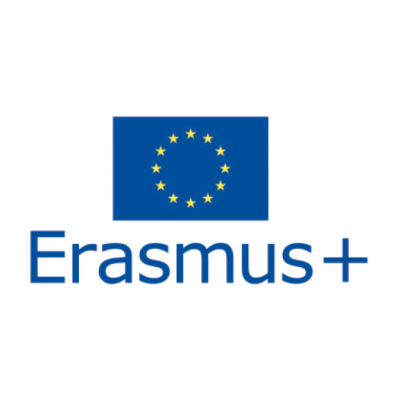
Erasmus+ - Key Action 3: Support for policy reform - initiatives for policy innovation European policy experimentations in the fields of education, training and youth led by high-level public authorities
Date de clôture : 14 avr. 2016
APPEL À PROJET CLÔTURÉ
APPEL À PROJET CLÔTURÉ
Description, objectives and priority themes
European policy experimentations under Erasmus+ key action 3 (Support for policy reform) — initiatives for policy innovation are transnational cooperation projects supporting the implementation of the European Union policy agen das on education, training and youth, including sector-specific agendas such as the Bologna and Copenhagen processes.
The general objective of this call for proposals is to promote the improvement of the effectiveness and efficiency of education and training systems and youth policies through the collection and evaluation of evidence on the systemic impact of innovative policy measures. This call requires the involvement of high-level public authorities of the eligible countries and the use of sound and widely recognised evaluation methods based on field trials (experimentation).
The specific objectives of this call are to:
-
— Promote trans-national cooperation and mutual learning among public authorities at the highest institutional level of the eligible countries in order to foster systemic improvement and innovation in the education, training and youth fields,
-
— Enhance the collection and analysis of substantive evidence to ensure the successful implementation of innovative measures,
-
— Facilitate the transferability and scalability of innovative measures. The priority themes for this call are:
-
— Education and Training field
-
Promoting fundamental values through Education and Training addressing diversity in the learning environment
-
Employment and Skills: validation of informal and non-formal learning in Education and Training
-
Strengthening teacher training and education by using the opportunities of new technologies (School education)
-
Towards more innovative and entrepreneurial higher education institutions through institutional change (Higher education)
-
VET teachers and trainers in work-based learning/apprenticeship (VET)
-
Implementation of a framework for the assessment of the effectiveness of adult learning policies
-
-
— Youth field
7. Reaching out: developing capacity for tackling and preventing marginalisation and violent radicalisation among young people
-
Eligible applicants
Applicants considered eligible to respond to this call are:
-
(a) Public authorities (ministry or equivalent) responsible for education, training or youth at the highest level in the relevant national or regional context (corresponding to NUTS codes 1 or 2; for countries where NUTS codes 1 or 2 are not available, the highest NUTS code available applies (1)). Responsible public authorities for sectors other than education, training and youth (e.g. employment, finance, social affairs, home affairs, justice, health, etc.) are consid ered eligible as long as they demonstrate that they have a specific competence in the area in which the experimenta tion is to be carried out. Public authorities can delegate to be represented by other public or private organisations, as well as by legally established networks or associations of public authorities, provided that the delegation is in writing and makes explicit reference to the proposal being submitted.
-
(b) Public or private organisations or institutions active in the fields of education, training or youth
-
(c) Public or private organisations or institutions carrying out activities linked to education, training and/or youth in other socioeconomic sectors (e.g. public authorities, agencies or services responsible for: education, training, youth, employment, social affairs, home affairs, justice, quality assurance, recognition and/or validation; career guidance, chambers of commerce, business and social partners, trade organisations, civil society, cultural or sport organisa tions, evaluation or research entities, media, etc.)
Only proposals from legal entities established in the following eligible countries are eligible: — the 28 Member States of the European Union,
— the EFTA/EEA countries: Iceland, Liechtenstein, Norway,
— EU candidate countries: Turkey, the former Yugoslav Republic of Macedonia
Minimum partnership composition
The minimum partnership composition requirement for this call is: 4 entities representing 3 eligible countries. Specifically:
-
— At least one public authority (Ministry or equivalent) or delegated body (as described in 2(a) from 3 different eligible countries, or a legally established network/association of public authorities representing at least three different eligi ble countries. The network or association must have a delegation from at least 3 responsible public authorities (as described in 2(a) to operate on their behalf for the specific project proposal.
Partnerships must include at least one responsible public authority as indicated under point 2(a) from an EU Member State.
-
— At least one public or private entity with expertise in counterfactual analysis and policy impact evaluation (‘researcher’). Such entity shall be responsible for the methodological aspects and the field trial protocols. The partner ship can involve more than one such entity, as long as the work is coordinated and consistent.
A project proposal can only be coordinated and submitted — on behalf of all applicants — by one of the following:
-
— A public authority as described under 2(a);
-
— A legally established network or association of public authorities as described under 2(a);
-
— A public or private entity delegated to reply to the call by a public authority described under 2(a). Delegated entities must have an explicit endorsement in writing by a public authority as described under 2(a), to submit and coordi nate the project proposal on their behalf.
Proposals must be submitted by the legal representative of the coordinator on behalf of all applicants. Natural persons may not apply for a grant. Only organisations that are in a position to demonstrate their existence as a legal person for at least 3 years (1) on the date of the deadline for submission of pre-proposals are considered eligible as ‘coordinator’ for the purpose of this call.
Lien officiel : Disponible pour les utilisateurs enregistrés




S'il vous plaît Se connecter pour voir cette section